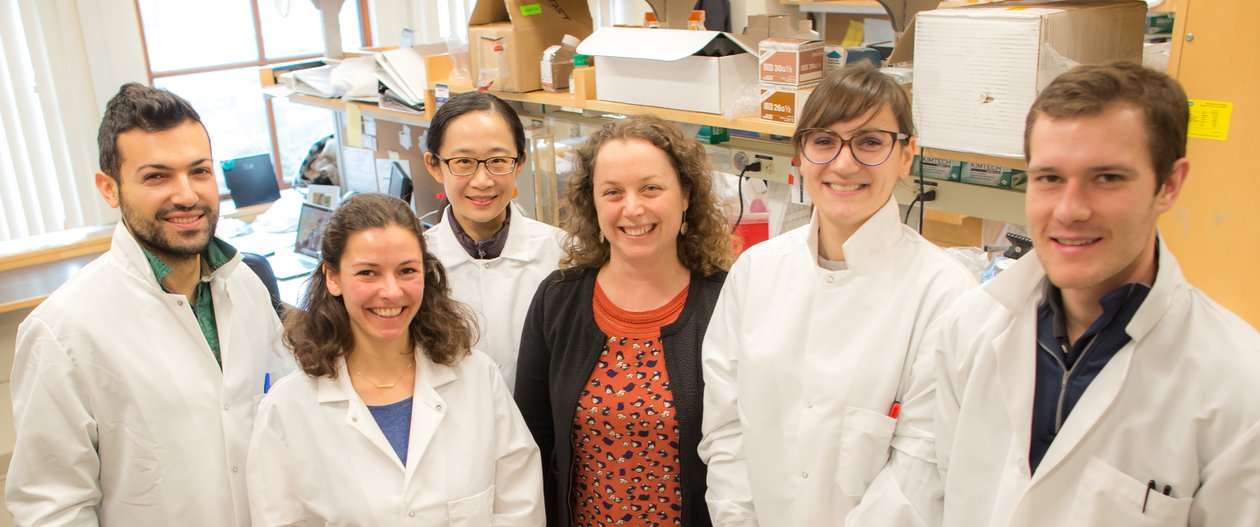A great opportunity to build international connections

The NCCR RNA & Disease offers mobility grants to PhD students and postdocs allowing the opportunity to conduct research in a laboratory abroad. The duration of the grant is between six and twelve months and can cover costs for travelling, living abroad, and attendance of scientific conferences. Melanie Jambeau (Polymenidou lab) was awarded a mobility grant and shares her experience with us.
My name is Melanie and I am a first year PhD student at the University of Zurich in the Polymenidou lab. I am doing a collaborative PhD at the University of Zurich and at Massachusetts General Hospital, in the Lagier-Tourenne lab.
I have one project, two supervisors and I am part of two labs. The goal is to use complementary approaches and to join forces to better understand how amyotrophic lateral sclerosis (ALS) progresses in order to block it. Since the beginning, this project has been challenging and at the same time extremely stimulating. The PhD includes stays in Zurich, but also in Boston, an exciting and new city for me.
In December 2016, the NCCR RNA and Disease offered me a Doctoral Mobility grant to support my research in the lab abroad, covering accommodation and travel expenses.
During these six months in Boston I learnt new techniques, attended fascinating conferences, met brilliant scientists, was inspired by great talks and laughed and exchanged ideas with students from all over the world. Knowing that Boston counts more than 50 universities, it was exciting that science goes on pretty much around the clock. Even a subway journey could be the setting for a passionate scientific debate. I remember registering for a conference that was to place close by on the campus on CRISPR-Cas9, thinking that it would be a small meeting and I ended up in a huge amphitheater, surrounded by hundreds of people; sitting next to me was a post-doc who had come all the way from New-Zealand to attend this conference. During three very intense days, we were able to listen to the most prominent and inspiring researchers in this field.
This NCCR mobility grant was a wonderful opportunity and one that allowed me to fully benefit from Boston’s scientific environment. These 6 months abroad helped me to better define my PhD project, which is centered on dipeptide repeat proteins, produced by RAN translation in patients suffering from the most common genetic form of ALS. We are now part of a larger collaborative project, involving four groups, which aims to understand how these toxic dipeptide repeats spread in the central nervous system and whether this could be prevented by immunotherapy. My contribution to this project is to define an RNA signature and assess the spreading abilities of each of these dipeptide repeats and to investigate the efficacy of the immunotherapy in vitro.
Going abroad gave me the opportunity to learn about new people, a different culture and to experience the way research works on the East coast of the US. This Doctoral mobility grant was a great opportunity and I would recommend it to people interested in having an enriching experience during their PhD.
I am now back in Zurich, and feel very motivated to be part of a bigger collaborative project, after this exciting start.
By Melanie Jambeau